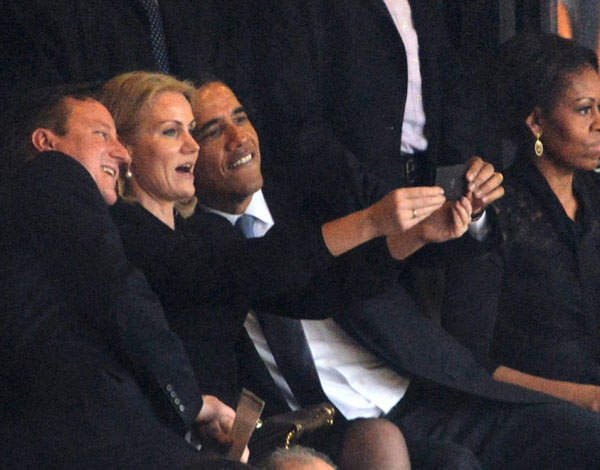

One of the ways in which David Cameron set a different political tone before becoming prime minister was WebCameron. This was intended to reveal a different kind of leader, relaxed and at ease with himself, a sharp contrast to the angst-ridden Gordon Brown.
Mr Cameron was followed around by Nicky Woodhouse, the Conservative Party’s first in-house producer/director, who developed a great relationship with the Tory leader, capturing brilliant footage which did indeed portray him in a very different light from the Labour prime minister.
Like a number of Mr Cameron’s opposition innovations, WebCameron did not survive the transition to government. There was a row about Woodhouse and the photographer who worked alongside her, Andrew Parsons, transferring to the Downing Street payroll. Initially they went back to work for the Conservative Party, before their roles were phased out.
This was surely a mistake. While it’s possible to overemphasise the significance of images in politics (there are clearly complex policy issues that cannot be distilled to a photograph or a YouTube clip), pictures increasingly speak more convincingly and more authentically than words.
The White House understands this. It has it own Flickr account, on which the White House official photographer regularly makes available iconic images of the presidency to millions of viewers.
When President Obama decided to attack and, as it turned out, kill Osama Bin Laden in Pakistan, a decision that may well have ensured his re-election, the moment was captured on camera. Obama was pictured in a tiny room, not the Oval Office or the mainSituation Room, but a small office, as he watched the operation unfold. The photograph captured a historic moment, ensuring that the president was personally placed at the heart of the story.
The White House understands the significance of such photographs, and no one seems to mind that the official photographer takes images not just of national security moments but also of the president with his children, wife and dogs. This is because they give voters an insight into the man and the office he holds that no number of words could capture, even if you did read them, which many potential voters can’t or won’t.
Framed fame
Celebrities increasingly understand the impact of images and are taking more control over them. A paparazzo who wrote for one of our journals at freuds recently revealed that many of the apparently snatched photographs that he had taken had actually been constructed with the connivance of the celebrities involved, who then shared in his fee — a process he called ‘mockerazzi’.
But now, he explained, many famous people were choosing to use Twitter and Instagram to release their own intimate photographs, undercutting the paparazzo market while taking control of their own image-making.
The way we consume news increasingly emphasises images over words. The Daily Mail has always contained a higher proportion of photographs than the broadsheets, but its Mail Online website, which is now easily the world’s most successful newspaper site, is driven by photographs, given that there are no space constraints on the web.
The corporate world has attempted to embrace this new paradigm, with limited success. Most company websites now contain downloadable images and videos, and nearly all are hopeless. Partly it’s the subject matter — men in suits looking at numbers are not exciting — but it’s also the attitude. It’s difficult for many executives to appreciate the extent to which all the words and numbers over which they labour so carefully can be eclipsed by a single image.
Muted reaction
In some of my previous careers, as a political speechwriter and then as a journalist, I attended party conferences for about twenty years in a row. I no longer go, and while I still watch the main party leaders’ speeches, I now try to watch a sizeable chunk of them with the sound turned off. I am convinced that the real impact that David Cameron and Ed Miliband have on the electorate as a whole is the way they look, rather than precisely what they say.
Of course, this insight is nothing new. The very first US presidential debate between Richard Nixon and JFK was judged a victory for Nixon by those who listened on the radio, but those who saw it on television overwhelmingly plumped for JFK. The changing way that we consume news has massively accelerated this process.
So today, if you care about the way you are perceived by the public, you need to embrace a world in which the way in which you are pictured will be as significant as anything you might say or even do.






